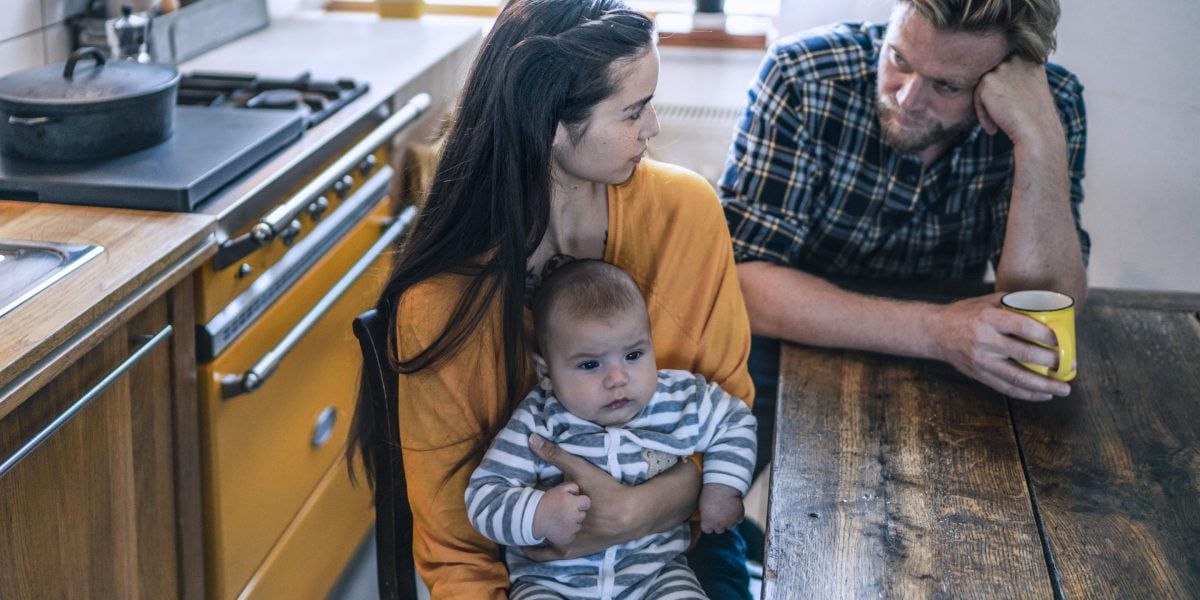Few milestones in life mean as much to the American Dream as owning a home. And millennials have encountered the kind of trouble totally befitting their generation, which largely graduated into the teeth of the disastrous post-2008 job market. Just as they entered peak homebuying and household formation age, housing affordability is at 40-year lows, and mortgage rates are near 40-year highs.
The anxiety this generation feels about the prospect of never owning their own home affects their entire perception of their finances and the economy, says Moody’s chief economist Mark Zandi.
“If they feel like they’re locked out of owning a home it colors their perceptions about everything else going on in their financial lives,” Zandi says.
Millennials have long been dogged by a brutal housing market. They faced not one, but two, cataclysmic economic events—the Great Financial Crisis in 2008 and the pandemic in 2020. Both of which left them reeling financially and struggling to afford a home. The Great Recession decimated the real estate market as the economy nearly collapsed under the weight of tenuous mortgage backed securities. While the pandemic brought with it a remote work boom that caused millions of citydwellers to flee to the suburbs, sending housing prices soaring.



First, thank you SO MUCH for your personal service. This should never devolve into a mere academic issue, to win fake points in some impersonal debate with someone online that will never meet irl. But if it was that, then you are definitey winning in the boots-on-the-ground sense, and I for one think that’s so freaking awesome!:-P
Yeah I do not know everything, I just know what I read, e.g. https://www.ajmc.com/view/us-has-highest-infant-maternal-mortality-rates-despite-the-most-health-care-spending. Ofc not every place world-wide is the same, and not every place in the USA is the same either, though I find it highly troubling that not just one but many places inside the USA has an infant mortality rate worst than SOME (though not all) nations that are considered “third-world” (e.g. https://www.uhhospitals.org/blog/articles/2019/04/addressing-the-health-crisis-of-black-maternal-death-and-infant-mortality, and this was even from several years ago before the recent data - COVID? - pushed our ranking down from 32 to 51st).
Though details aside, yes it could always be worse, I cannot argue with you there:-). Mostly I think it means that we should not pat ourselves on the back saying “good job, America!” b/c there’s so much that remains to be done. But also, I don’t see how telling people who are grieving the loss of their futures that it can always get much worse is going to help? Then again, we are only dancing around semantics here - regardless of how it is phrased or handled, I do agree that we need to adjust our expectations moving forward, and opening our eyes to check our first-world privileges is a fantastic start to that:-).
This is a valid concern, and it’s true you can measure QoL on a variety of different metrics.
I’d be really curious to know by what the infant mortality rate is so high in the US specifically, what’s killing them by comparison?
Cuz I know their Healthcare statement isn’t great but still, it’s hard to imagine it’s doing that bad, is another factor at play? Their poverty isn’t bad enough to explain it, and I dunno if gun violence plays a huge role for infant deaths (child and teen deaths though, absolutely)
What’s the cutoff for infant? Old enough for guns to start factoring in, cuz that’s a serious issue on its own as well.